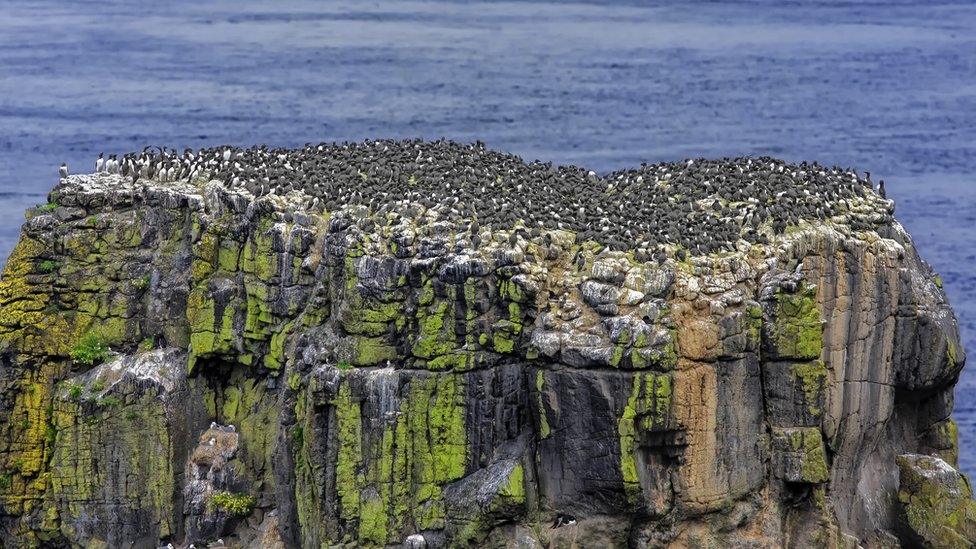Avian flu: Rathlin Island seabirds tested after small number found dead
- Published

A colony of seabirds on Rathlin Island
Tests are being carried out after a small number of seabirds on Rathlin Island were found dead.
It is understood the birds were discovered in Church Bay, the main harbour on the island off the County Antrim coast.
Agriculture department officials said two birds had tested positive for Highly Pathogenic Avian Flu (HPAI) in Northern Ireland.
Reporting of wild birds was introduced in April this year.
The HPAI strain is behind the largest ever outbreak of the disease on these islands, which began in November 2021.
It led to the culling of hundreds of thousands of birds across the UK, when cases were detected in commercial poultry flocks.
The Royal Society for the Protection of Birds (RSPB) said there had been no confirmed cases of bird flu at its West Light Seabird Centre on Rathlin Island.
A spokesperson said staff and volunteers were "following strict protocols and will continue to be vigilant for dead or sick birds, reporting this to DAERA (Department of Agriculture, Environment and Rural Affairs) as required".
A team of scientists across the UK is examining why this season's outbreak has been so fatal, and what measures are needed "to prevent future spill-overs of influenza with pandemic potential into humans".
Guillemots are some of the seabirds that can be found on Rathlin Island
The Avian Influenza Protection Zone for Northern Ireland was lifted on 1 June 2022.
A DAERA spokesperson said: "There have been no further cases of Highly Pathogenic Avian Influenza (HPAI) in poultry in Northern Ireland since early February 2022.
"Since the wild bird survey recommenced in April, two submissions have tested positive for HPAI H5N1.
"We are also aware of an increase in mortality of seabirds on Rathlin Island.
"Testing is currently being carried out to determine if HPAI has been the cause."
Flock keepers, from poultry farmers to backyard hobbyists, have been advised to maintain strict biosecurity standards.
Meanwhile, parts of England, Scotland and Wales are still feeling the brunt of the outbreak in their wild bird populations.